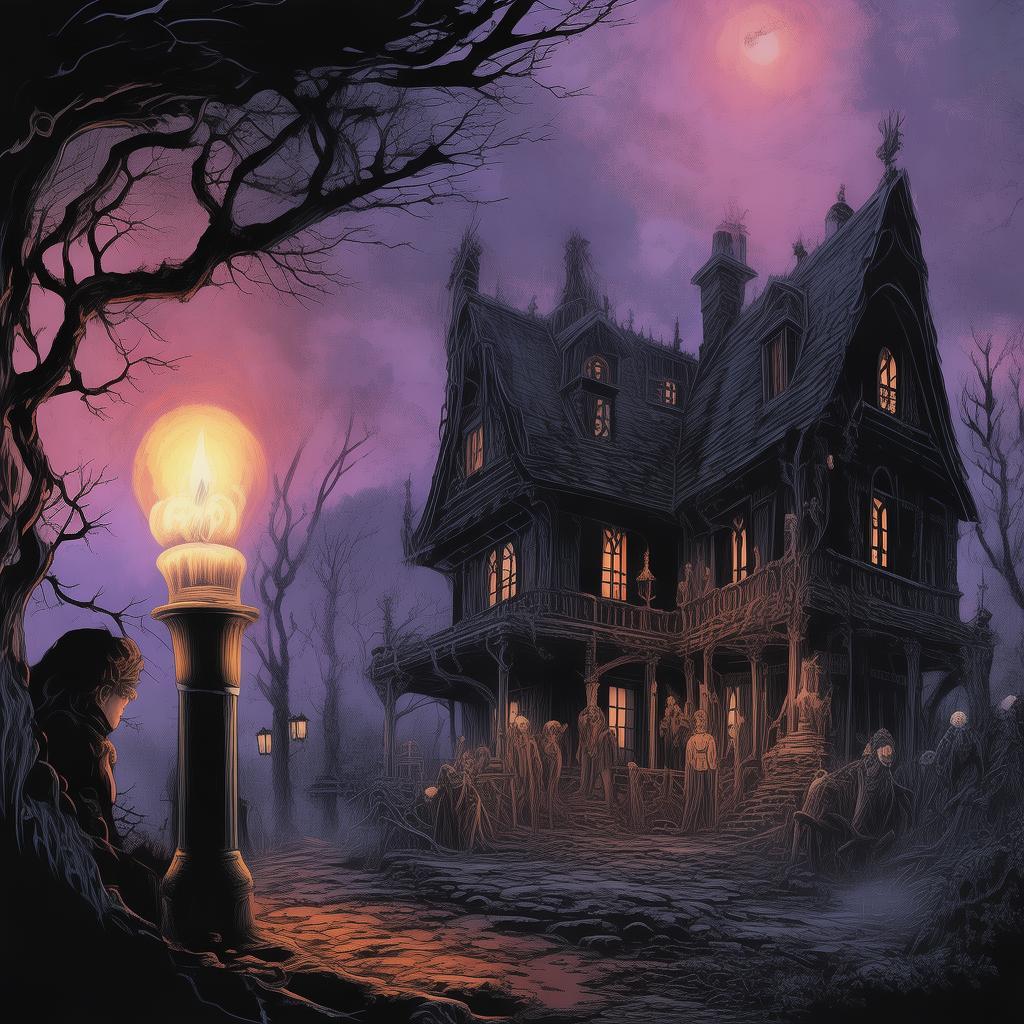The Haunting of the Abandoned Orphanage
In the heart of a forgotten town, where the cobwebs of time seemed to entangle every brick and beam, lay the abandoned orphanage. Once a beacon of hope for the destitute and the lost, it now stood as a testament to the passage of time and the cruel hand of fate. The children who once played in its shadow were long gone, their laughter replaced by the eerie silence of the forgotten.
Amara had spent her childhood in the orphanage, her memories a tapestry of warmth and loneliness. The nuns who had cared for her were like distant stars, their kindness a distant memory. As a child, she had felt the cold touch of spirits, the whisper of voices that seemed to call her name in the dead of night. Her mother, a woman who had vanished without a trace, was the greatest mystery of her life.
Now, years later, Amara had returned to the orphanage. The air was thick with the scent of decay, the walls seemed to breathe with the ghosts of the past. She had come to uncover the truth about her mother, to face the ghosts that had haunted her since she was a child.
The first night was a blur of fear and confusion. As she wandered through the dimly lit halls, the creaking floorboards seemed to echo her every step. She found herself drawn to the old, abandoned nursery, the room where she had spent countless nights as a child. The cribs were empty, the toys scattered, the walls adorned with faded paintings of smiling children.
As she entered the room, the temperature dropped suddenly, and a chill ran down her spine. She felt a presence, a silent observer, watching her every move. The air grew thick with anticipation, and she could almost hear the ghostly whispers of the children who had once played here.

"Amara," a voice called out, soft and haunting. She spun around, but there was no one there. The voice seemed to come from everywhere, a ghostly echo that seemed to fill the room.
Determined to uncover the truth, Amara began to search for clues. She found old letters, photographs, and a journal that belonged to her mother. The journal revealed a woman torn between love and a dark past. She had written about a man, a man who had threatened her and her child. The journal also spoke of an escape, a desperate flight from a life of fear and pain.
As Amara read the journal, she realized that the man who had threatened her mother was her father. The truth was a heavy burden, but it also provided her with a purpose. She needed to find him, to confront him, and to understand why he had abandoned her and her mother.
The next night, as she wandered through the corridors of the orphanage, she felt a strange connection to the place. She knew that she was on the right path, that she was close to uncovering the truth. She found herself in the old library, a room filled with dusty books and forgotten memories.
In the center of the room stood a large, ornate desk. On the desk was an open book, its pages yellowed with age. She opened the book, and her eyes fell upon a photograph. It was a picture of her mother, standing with a man who looked strikingly similar to her. The caption read, "John and Emily, 1975."
John, her father. The man who had threatened her mother. The man who had abandoned her. The realization hit her like a ton of bricks. She knew that she had to find him, to confront him, and to understand why he had left her behind.
As she left the library, she felt a strange presence once again. This time, it was stronger, more insistent. She turned and saw a figure standing in the doorway, a figure that seemed to be made of shadows and mist. The figure approached her, and she felt a chill run down her spine.
"Amara," the figure said, its voice echoing in her mind. "You must face your past."
The figure reached out, and Amara felt a hand brush against her cheek. The touch was cold, like ice, and it sent shivers through her body. She looked into the figure's eyes, and she saw her mother, her father, and the children who had once played in the orphanage.
"I understand now," she whispered. "I understand why you're here."
The figure nodded, and then it vanished, leaving Amara standing alone in the library. She knew that she had to leave the orphanage, to confront her father, and to face the truth.
As she walked out of the orphanage, the sun was setting, casting a golden glow over the town. She felt a sense of peace, a sense of closure. She had faced her past, and she had uncovered the truth.
The Haunting of the Abandoned Orphanage was more than a ghost story; it was a journey into the heart of a woman's past, a journey that would change her life forever.
✨ Original Statement ✨
All articles published on this website (including but not limited to text, images, videos, and other content) are original or authorized for reposting and are protected by relevant laws. Without the explicit written permission of this website, no individual or organization may copy, modify, repost, or use the content for commercial purposes.
If you need to quote or cooperate, please contact this site for authorization. We reserve the right to pursue legal responsibility for any unauthorized use.
Hereby declared.









